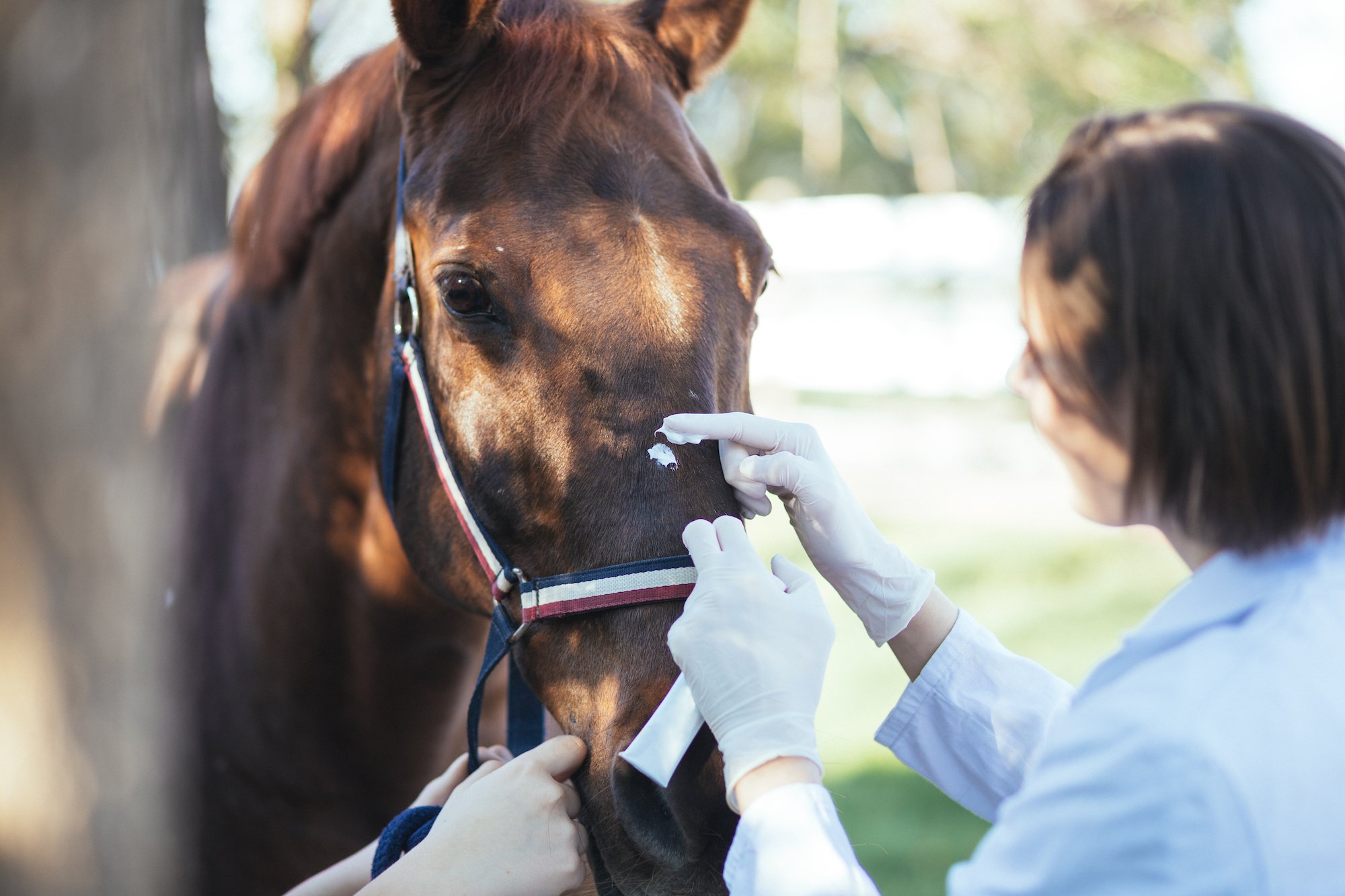Our Current Services at Mid-Atlantic Veterinary Dermatology
Below are a couple of the key services offered in our Leesburg Office. Please scroll through to learn more. Feel free to contact us with any questions.

How an Animal Dermatologist Can Benefit Your Pet
Dealing with an itchy pet can be a source of great frustration for both owners and their pets. While many are unfamiliar with veterinary dermatologists, these specialized veterinarians undergo rigorous training and certification by the American College of Veterinary Dermatology. They excel in diagnosing and treating various skin, ear, mouth, hoof, nail, and coat disorders, with a focus on managing allergic diseases.
Veterinary dermatologists possess the expertise to identify subtle differences in skin and ear conditions, from acute issues to chronic ailments like hormonal skin diseases and autoimmune disorders that affect pets. These professionals may utilize advanced diagnostic techniques such as biopsies, video otoscopy, and intradermal skin testing to reach an accurate diagnosis. Treatment plans often involve a mix of medications, surgical procedures, allergen-specific immunotherapy, and other interventions.
-

Skin Disorders
-

Ear Disease & Video Otoscopy
-

Food and Environmental Allergy Testing & Diagnostics
-

CO2 Laser & Cryo Surgery
-

Flea, Tick, Insect Allergy
-

Immunotherapy

Chronic Skin Disorders
Chronic skin disorders in pets can lead to symptoms like itching, scratching, paw chewing, hair loss, and various sources of discomfort. These can be uncomfortable for pets, and frustrating for pet owners. Numerous conditions, such as allergies, severe infections, hormonal diseases, skin cancer, among others, can impact the skin and ears.
The most common types of chronic skin disorders in pets include:
Parasitic infestations (such as fleas or mites)
Bacterial or fungal infections
Autoimmune skin diseases
Hormonal imbalances
Environmental irritants.
Ear Issues & Video Otoscopy
Chronic ear disease is a common reason for pet owners to seek veterinary dermatology specialists. Recurrent and persistent ear issues in dogs are often due to incomplete treatments or undiagnosed underlying causes. Dermatologists enhance the treatment of pets with chronic ear disease through video otoscopy, which offers clear visualization of the ear canal, eardrum, and occasionally the middle ear, revolutionizing the management of ear infections.
The most common ear issues in pets include:
Ear infections (otitis)
Parasitic infestations (such as ear mites)
Allergies leading to ear inflammation
Foreign objects lodged in the ear canal
Trauma to the ear
Autoimmune conditions affecting the ears.

Allergy Testing & Treatments
Identifying specific allergens causing reactions in pets through allergy testing and developing a tailored management plan is crucial to alleviate symptoms. Testing methods like blood tests or skin tests help pinpoint triggers. Treatment options may involve allergen avoidance, medication, immunotherapy, or specialized diets to manage allergic reactions effectively and improve the pet's quality of life by reducing exposure to allergens.
The most common types of allergy issues in pets include:
Food and Medicine Allergies
Parasitic Allergies (such as fleas or mites)
Environmental Allergies
Contact Allergies

Equine and Large Animal
We are thrilled to announce our partnership with Virginia Tech to consult on equine and large animal dermatology and allergy cases at the Virginia Tech Marion duPont Scott Equine Medical Center in Leesburg, VA. This will eventually be a monthly offering. Our next available equine appointment openings are on Friday, February 12th, and March 13th. Spaces are limited. Please call our office to book an appointment at 703-594-1308 or email us at info@MAVetDerm.com.
Common Equine Cases:
Parasitic infestations (such as fleas or mites)
Allergic dermatitis
Atypical bacterial and fungal infections
Neoplasias
Autoimmune skin diseases
Non-healing wounds
Still not sure if you need a consult?
It's ok! We're happy to talk to you about your pet's condition. Feel free to call us, email us, or even send pictures. We'll try to provide you with our best advice on what your first step should be.





